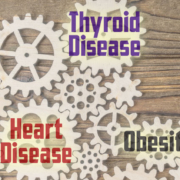How Complex Systems Fail
If we acknowledge that the human body is itself a complex system and is made up of individual complex systems, then we can examine where things may go wrong to cause disease. In order to “fix it,” we have to be able to identify where things can go wrong. For ideas on that, I’m going to use a paper written in 1998 by Dr. Richard Cook titled How Complex Systems Fail. If you get a chance to read it, please do so at the link below. In the paper, he talks about how large organizations such as healthcare systems and other businesses can fail as complex systems. There are 18 points in the article and not all apply directly to the human body; I’m going to use only the first two in this memo.
Complex systems are intrinsically hazardous systems.
Your heart beats between 60 to 80 beats per minute on average. In order for it to do that, it relies on the muscular system of the heart, the nervous system within the heart as well as the autonomic nervous system, hormones, blood vessels, and on and on. In one heartbeat, there are intrinsic hazards in many locations that can impact whether the heart works well or doesn’t.
Complex systems are heavily and successfully defended against failure.
The best example of this is your immune system. Every day, you’re going to have cells that do not reproduce correctly. If not addressed immediately, they could grow into some form of cancer or other type of abnormal cells, but your immune system recognizes that the protein structure is incorrect and eliminates it.
The same holds true for every system in the body. Some of the trillions of cells in the body fail just about every second of the day, but there are safeguards and defense mechanisms that clean up after the problem cells. If these defense mechanisms didn’t work, none of us would be here.
While there are other points that apply to the human body in the document, the first two set the stage for dealing with diseases and conditions once systems fail. I’ll cover that on Saturday.
What are you prepared to do today?







